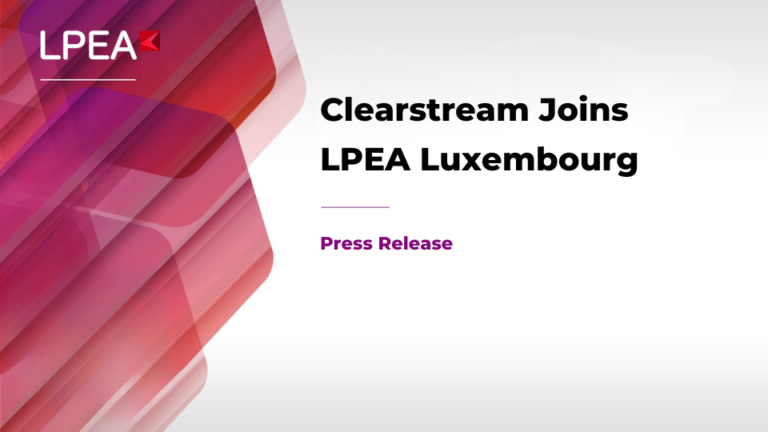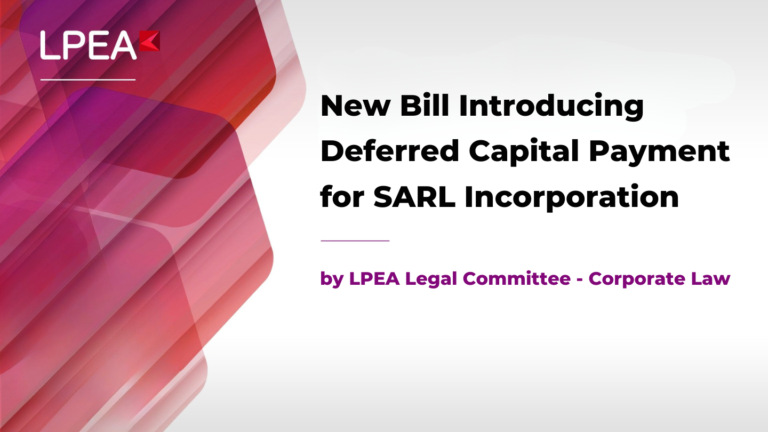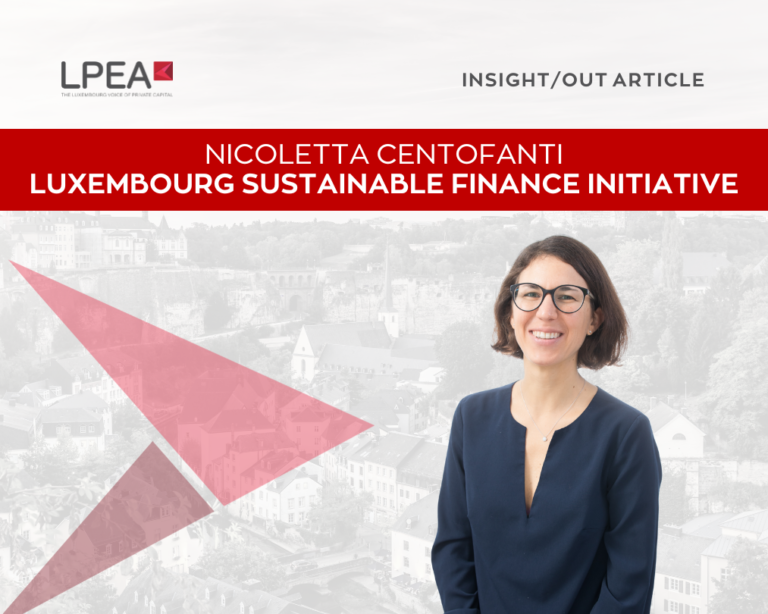By Pierre Weimerskirsch
Managing Director and Co-Founder LIS – A SANNE Company
and Christian Hertz
Managing Director, Head of LIS – A SANNE Company
OVER THE LAST TEN YEARS THE EUROPEAN ASSET MANAGEMENT INDUSTRY HAS BECOME AN INTEGRATED AND SEAMLESS MARKET WITH LONDON ESTABLISHING ITSELF AS THE INTERNATIONAL HUB FOR PRIVATE EQUITY FUND MANAGERS IN THE EU.
Under the passporting principle, managers can freely sell their management services and funds across Europe. For UK licensed managers the music will most likely stop on 31 December 2020 when the post-Brexit transition period ends as all signs point to a hard Brexit. Unless a last minute Brexit Agreement proves otherwise, the UK will be treated as a third-country from an EU perspective post 31 December 2020. Consequently, UK managers will no longer benefit from the passporting rights and won’t be able to sell UK funds into the EU. To preempt such an outcome, many UK Private Equity managers have set up funds in Luxembourg which are often structured as a parallel vehicle to the main UK-based fund.
The marketing of these funds is often organised through the managers’ UK-based investor relations teams by taking advantage of the EU passporting rights. But from the beginning of next year, UK-based sales teams will no longer be able to carry out marketing activities in the EU.
Those managers who would like to continue having access to EU capital and its 448 million citizens have to adjust their operating model. They have two options. Besides setting up their own AIFM in an EU country they can also use the services of third-party AIFM. Whereas the first option takes several months to go through the authorisation process, appointing a third-party AIFM can be done within several weeks. While many managers have already taken action there are still managers who are sitting on the fence and hoping for a last minute agreement. If they don’t want to be caught off guard, immediate action is required now. The appointment of a third-party AIFM before the Brexit effective day is the obvious option as it shall avoid any distribution black-out period.
The third-party AIFM solution
The third-party AIFM can indeed help in different ways with the fund marketing. The first option is for the third-party AIFM to act as a distributor and for fund initiators to act as an introducer. The hosting AIFM is identified in the marketing passport notifications as the marketing entity and discharges its duties by providing marketing materials and subscription documents to prospective investors in close coordination with the fund. The fund initiator acts as a marketing assistant and assists the AIFM with tasks such as identification and sourcing of potential investors and helping with the assessment if the potential investor is eligible to invest in the fund. The fund initiator does not conduct any regulated activities itself as defined under MiFID.
MANAGERS HAVE TO PAY ATTENTION TO THE NEW EU FRAMEWORK FOR CROSS-BORDER
DISTRIBUTION OF FUNDS THAT WILL ENTER INTO FORCE IN AUGUST 2021.
Pierre Weimerskirsch
Another option is for the third-party AIFM to act as distributor with secondees from the fund initiator. In this model the hosting AIFM is identified in the marketing passport notifications as the marketing entity and employs one or several secondees from the fund initiator to help discharge this role. Going forward the secondees have to be resident in Luxembourg. The Luxembourg regulator CSSF asked recently that all cross-border secondment arrangements in relation to marketing activities should be terminated at the latest at the effective Brexit date. During the fund raising period, the secondees operate in accordance with specific rules such as allocating a defined amount of time to the marketing activities and complying with the policies of the hosting AIFM. These rules are documented in a secondment or staff provision contract. It could be envisaged that other employees of the fund initiator based in other locations provide technical assistance to the AIFM. However, marketing activities shall remain with the AIFM and the secondees soley.
Besides using the direct support of a third-party AIFM the fund initiator has additional options at hand. One option is for the fund to be identified in the marketing passport notifications as the marketing entity and discharge its duties through general partner board members. The attractiveness of this option is that the manager has the opportunity to propose members from their UK-based investor relations team to be part of the board of managers. Hence, they can reach out to EU-based investors to market the fund. As there is no harmonized EU framework regarding self-marketing, the fund initiator should verify beforehand which jurisdictions allow the General Partner (GP) board members to self-market a duly passported AIF without the GP itself being regulated to avoid violation of regulatory restrictions.
Market with a MIFID investment firm
Another way to access market the fund is to engage with a MiFID investment firm as a tied-agent. In this model, an entity of the fund sponsor is appointed as tied-agent of a MiFID investment firm, which itself is appointed by the fund to conduct marketing activities. The entity “acting as a tied-agent” to the relevant MiFID firm is identified in the marketing passport notifications as the marketing entity. The tied-agent shall explicitly disclose to its counter parties that it acts as tied to the relevant MiFID firm. It is however important to note that the entity appointed as tiedagent must be in an EU jurisdiction as non-EU branches, affiliates and employees of the tied agent cannot conduct marketing activities under such passport. The entity however can be set up as a simple commercial company and does not have to be regulated.
While a hard Brexit scenario poses serious challenges to UK Private Equity managers regarding the marketing of their fund to EU investors, different options are available to address these challenges. It is important to assess on a regular basis the option chosen due to the changing regulator environment. More particularly, managers have to pay attention to the new EU framework for cross-border distribution of funds that will enter into force in August 2021. The new framework clarifies certain ambiguities with respect to the current rules of marketing of funds and provides a harmonised definition of the activities of “pre-marketing”.




